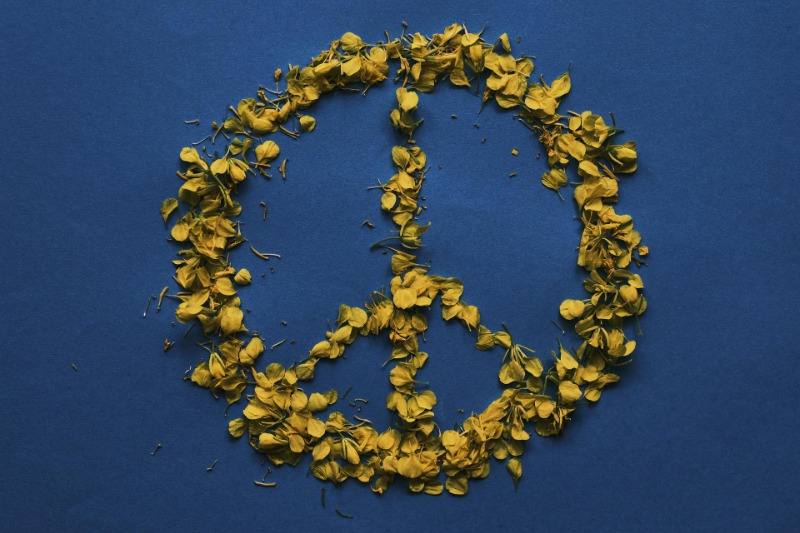HUGH SMITH: Justice - the first casualty of peace?
June 11, 2022
A 21-year old Russian tank commander, Sergeant Vadim Shysimarin, has been tried and sentenced to life imprisonment in the Ukraine for the murder of a civilian. This is the first war crimes trial arising out of Russias special military operation a label which does not exempt any of the combatants from the law of armed conflict’.
A mountain of evidence of further war crimes is being built up by Ukraine, by supporting countries and by international organisations such as the International Criminal Court, the UN Human Rights Commission and the Organisation for Security and Cooperation in Europe. Ukrainian authorities are reported to have registered over 11,000 war crimes for investigation, identified more than 5,000 Russian soldiers and prepared over 40 cases for prosecution. (Guardian, 13 May 2022)
Australias former Attorney General, Michaelia Cash, also joined in the hunt along with the US, UK, Canada and New Zealand, stressing her determination to ensure that every perpetrator faces justice. Trials within Australias jurisdiction are also on the table. (Australia backs war crime probes, Canberra Times, 21 May 2022)
Gathering evidence has been made easier by Russias undiscriminating brutality and by videos from ubiquitous mobile phones, CCTV and drones. Some of these accounts may be fabrications as Ramesh Thakur has pointed out (Pearls and Irritations, 21 May 2022) but only some. Russias assertion that its forces have not committed any war crimes at all is met with incredulity, even anger.
For decades western governments have been advocating and developing universal laws to govern all substantial armed conflicts. War crimes trials even of Putin himself seem to be a proper and necessary way of dealing with atrocity. In the West, at least, public opinion is being primed to expect large-scale trials such as followed WW II. The first war crimes trial in Ukraine, however, illustrates some of the legal, ethical and political traps into which these efforts may fall.
The trial of Sergeant Shysimarin which is likely to go to appeal is, first of all, a test of Ukrainian justice. The accused needs to be effectively represented and the ultimate verdict must not appear politically-driven. Reports that Ukraine is prepared to charge some of its own soldiers with mistreating prisoners, if true, would bolster the claim that a government at war is able to dispense justice impartially. Yet there remains a concern that a nation prosecuting enemies who have inflicted grievous harm on its citizens will indulge in what might be called not victors justice but captors justice. Calls for an international tribunal are intended to avoid this problem.
A second issue was raised by Shysimarins lawyer. The defence of superior orders was offered but this was correctly rejected by the court (though it is a factor that could have led to mitigation of the sentence and may do so on appeal). More difficult to resolve was the argument that the victim was using his mobile phone to report the location of Russian troops to Ukrainian forces. Determining when a civilian is actively engaged in combat and is consequently a legitimate target is often difficult, especially in the midst of combat operations. Australias experience in Afghanistan also demonstrated this problem.
A third issue arises from the fact that a single individual was put on trial. Sergeant Shysimarin was unlucky enough to be taken prisoner. Many thousands of Russian soldiers who may be just as guilty will not be captured and will never face trial. More problematically, those responsible for planning the war, determining the strategy and ordering the commission of war crimes are also likely to escape prosecution. If, in the end, a few lowly ranked Russian soldiers are punished, this will be little more than tokenism.
But putting prisoners of war on trial must also be seen in its wider military and political context. From a Russian soldiers point of view, being captured could well mean life imprisonment; he may possibly be deterred from committing war crimes but also be more ready to fight on rather than surrender. At the same time Russia has raised the possibility that it will put Ukrainian soldiers on trial, perhaps for armed rebellion or terrorism against the recognised authorities in the Peoples Republics of Luhansk and Donetz. No doubt they would be found guilty. Tit-for-tat war crimes trials have more to do with political bargaining than with enforcing the law.
That politics comes before justice is further illustrated by Ukraines indication that it might be prepared to repatriate Sgt Shysimarin in exchange for Ukrainian prisoners held by Russia. The expectation can only be that they would be released on returning to Russia. The Kremlin would declare their soldiers to be innocent, convicted for purely political reasons. Such exchanges would hardly amount to doing justice.
Turning a blind eye to war crimes, however, may be the only path to achieve a halt to hostilities. Unless Russia is comprehensively defeated militarily or Putin is replaced by a conciliatory leader neither at all likely the rush to prosecute will have to be called off sooner or later. Russia will not agree to an end to the fighting unless war crimes prosecutions including trials in absentia are dropped. For its part Ukraine will find it easier to abandon the quest for justice than to abandon national territory. Ukraine and its friends may have to swallow this bitter pill.
Dr Hugh Smith AM taught the law and ethics of war as an academic with UNSW at the Australian Defence Force Academy.

